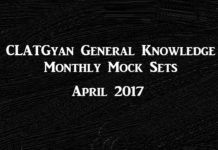Here is the second Exercise on Para-jumbles with 25 questions. (Click here for the first one). Select the answers and click “Next”. Time yourself for 12 minutes. (one shouldn’t take more than that to answer these questions). Answers will be displayed after the completion of the quiz. Go ahead… All the best!
Latest article
The Daily Brief – 30th July 2020
Unlock 3 guidelines
News: Government has issued Unlock 3 guidelines.
Allowed activities
Gymnasiums and yoga institutes have been allowed to function from August 5 and night curfews...
The Daily Brief – 29th July 2020
Global tiger conservation day
Source – India Today
News: It is an annual event observed every year on July 29, to raise awareness for tiger conservation and making...
The Daily Brief – 28th July 2020
One-time restructuring of corporate loans
News: Leadership of big banks like HDFC, Kotak Mahindra pushed for a one-time loan restructuring scheme to tackle the rising banking stress at...











I got 15/25 in 16 minutes.
How is that?
Also, what should I focus on improving, speed or accuracy? (keeping in mind how many students in CLAT ’11 couldn’t complete the paper due to shortage of time).
Regards
I got 15/25 in 12 minutes. How would you rate that??
Q.14,i think the right sequence ought to be CBEAD. E cant be before B,as suggested on option 3,which is marked as the right answer.
suggested *in 😀
got15/25 in 15 mins. Confusing shitt!!
Nice post. I learn something totally new and challenging onn
sites I stumbleupon on a daily basis. It’s always helpful to read
through content from other authors and practice something from their web sites.
Nice material Thanks!!
Just 1 strange thing in both the exercise I found incorrect answer for question 5 not sure if anyone noticed this.
This exercise was great!